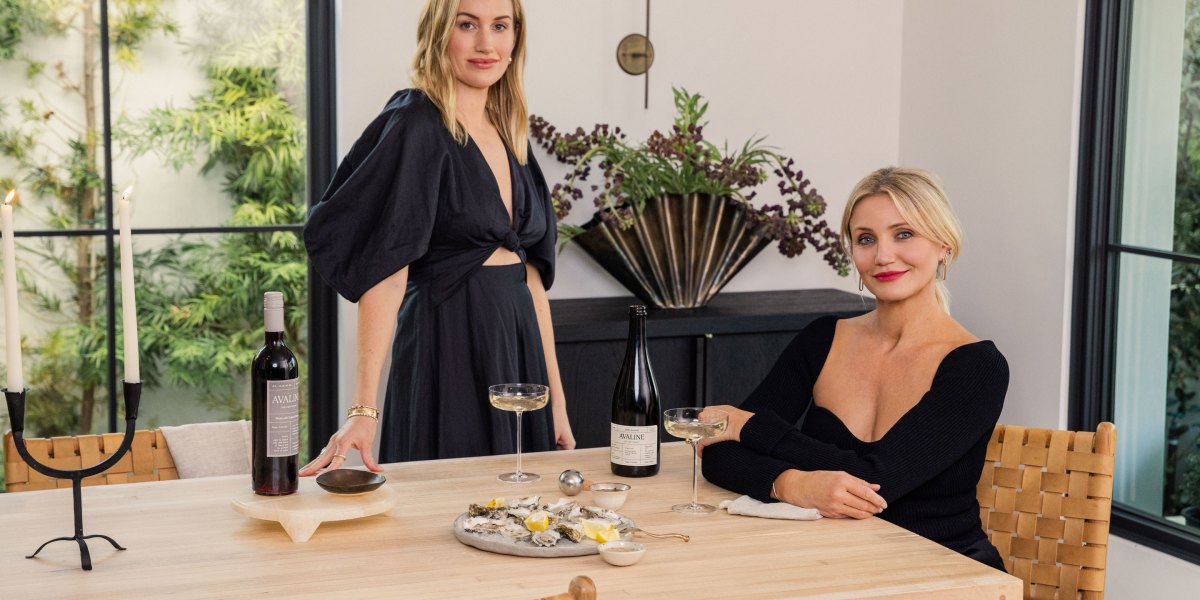Good morning, Broadsheet readers! Vice President Kamala Harris goes on Call Her Daddy, a set of worrying trends converge on women in tech, and the ‘xennial’ customer is key to one founder’s repeat success. Have a mindful Monday.
– Next gen. Between Gen X and millennials, there’s a micro-generation called “xennials.” Born between the late 1970s and early 1980s, the members of this generation bridge the gap between their Gen Z kids and their parents—and they’ve been crucial to the success of a portfolio of brands founded by serial entrepreneur Katherine Power.
Power founded the fashion blog Who What Wear in 2006 before turning her attention outside media; today, she’s behind the skincare brand Versed, the social media-favorite beauty brand Merit, and the wine brand Avaline, which she cofounded with actor Cameron Diaz. Merit has raised $20 million led by L Catterton’s growth fund; Power is also a partner at the venture firm Greycroft.
Across this portfolio, Power has consistently aimed to serve the xennial female customer—a strategy that has, in turn, helped the brands reach other shoppers. “By targeting that micro-segment, it’s helped us reach the generation below her and the generation above her,” Power says.
Courtesy of Versed
The xennial shopper right now is in or near their peak earning potential with peak responsibilities: caregiving for both kids and parents, homeownership, and demands at work. Those responsibilities make this customer a crucial point of connection between demographics. They’re known by retailers to have higher basket sizes and more brand loyalty. “She’s buying blush for her daughter, and she’s telling her mom to drink the wine,” Power explains.
While other cohorts have also served as this point of connection, what makes the xennial unique is growing up in an analog world before quickly adapting to the internet in adulthood. That experience makes this micro-generation technologically savvy but with a nostalgia for the pre-internet era. “We have this millennial mindset in a lot of ways, but the tradition and nostalgia of Gen X,” Power says.
Those qualities have guided marketing and product strategy across Power’s brands. Merit’s makeup is meant to work well on fine lines and wrinkles and be easy to apply with one hand—whether for a young, first-time makeup wearer or a busy mom. Its campaigns typically feature talent over age 40 that also speaks to younger shoppers, like Gossip Girl actor Kelly Rutherford or legendary Vogue editor Grace Coddington. At Avaline, 62% of the brand’s e-commerce shoppers are between 35 and 54 and the brand has leaned into marketing its wine for everyday moments rather than special occasions.
Cameron Diaz says that while she’s pretty firmly Gen X, she identifies with the xennial shopper. “It’s a mindset,” she says. For Diaz, that’s translated as a more typically millennial focus on ingredients and organic shopping, which is a differentiator for Avaline in the wine category.
Merit in particular has become popular on TikTok. “We want it to be multigenerational,” Power says, “but targeting this woman is how we feel we best get there.”
Emma Hinchliffe
emma.hinchliffe@fortune.com
The Broadsheet is Fortune’s newsletter for and about the world’s most powerful women. Today’s edition was curated by Nina Ajemian. Subscribe here.
ALSO IN THE HEADLINES
– Tech setbacks. A confluence of factors has led to worrying trends for women in tech and organizations that support them. The pandemic, a short-lived move toward initiatives focused on race rather than gender, then a DEI retrenchment, and then AI mania have all contributed to setbacks for women in Silicon Valley. The Information
– Don’t call her humble. During an appearance on Alex Cooper’s Call Her Daddy, Vice President Kamala Harris responded to Sarah Huckabee Sanders’ comments that Harris lacked something to “keep her humble” without biological children. “I don’t think she understands that there are a whole lot of women out here who one, are not aspiring to be humble,” she said during a conversation about women’s rights and the election. CNN
– Skims’ shape. In 2023, Skims’ revenue hit $713 million. Kim Kardashian calls herself the face of the brand but refers questions about an IPO back to CEO Jens Grede in this interview. Financial Times
– One year later. On the one-year anniversary of the Oct. 7 Hamas attacks on Israel, big companies are mostly staying quiet. While influential business figures like Sheryl Sandberg have become loud voices on the topic, corporate America largely sees the issue as too complex and polarizing to weigh in. Axios
– Walmart workforce. Walmart chief people officer Donna Morris is tasked with leading a workforce of 1.6 million—and luring talent to Bentonville, Ark. She describes the city as “your favorite Hallmark movie” when making the pitch to prospective hires. New York Times
MOVERS AND SHAKERS
Hornblower Group, an experiences and transportation company, named Michelle Mason chief people officer. Previously, she was CHRO at Talent.com.
TravelNet Solutions, an integrated software and marketing solutions provider for the hospitality industry, appointed Wendy Glover as senior vice president of customer experience. Most recently, she was principal consultant for 30A Vacation Rental Consulting.
RPM International, a specialty coatings, sealants, building materials, and related services provider, named Tracy D. Crandall vice president, general counsel, and chief compliance officer. She is currently RPM’s vice president, compliance and sustainability, and associate general counsel.
ON MY RADAR
Beyoncé released a song and Levi’s saw its moment New York Times
They raised the world’s biggest superstars. Now they’re telling their own stories Glamour
Not all men, but any man The Atlantic
PARTING WORDS
“I was respected, impacting the business, felt I had made major contributions, and was on my career high. But what more was I going to contribute? What was I going to learn beyond that?”
—Laura Low Ah Kee on leaving her executive role at Lululemon to launch a swimwear brand
